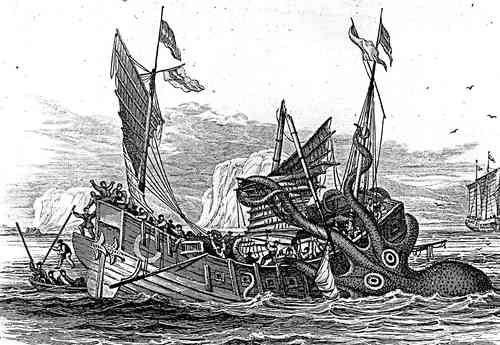San Cristóbal de Las Casas, Chis., The writer and poet Balam Rodrigo Pérez Hernández (Villa Comaltitlán, Chiapas, 1974) received the 2024 José Revueltas Fine Arts Prize for Literary Essay for his work Kraken, .
Interviewed in San Cristóbal, where he lives, Balam Rodrigo explained that “Kraken It is a book of creative essays that has many roots in science; it is an essay about the giant squid. I used the myth that surrounds it, the lack of knowledge about the animal itself to make an essay in a scientific key, but also in a poetic key.”
He added: It is a book that also straddles the line between essay, scientific research and poetry. I draw on myths, stories, recent and ancient scientific knowledge of the giant squid, from Aristotelian knowledge to recent research by cephalopod specialists.
.
A biologist by profession, a graduate of the National Autonomous University of Mexico (UNAM), the author from Chiapas also expressed that, The book has one thing in common: it is unique, especially because of its format. I wrote it as if it were a scientific article; I used my scientific knowledge and experience as a biologist and I asked myself why no one has used that format of the scientific article to write a more creative and literary book.
.
He added: “It is a kind of poetic monograph, an essayistic diary about the giant squid using the same metaphor, the myths, the legend that surrounds the giant squid to make a claim and a manifesto in defense of bestiality, of the wild, that we must free and care for the natural spaces that remain, or those species in danger of extinction, even the unknown ones.
“We humans have to leave some areas of the planet, some animals and plants, untouched and not destroy them, let them live in total freedom. I also declare myself in defense of wild nature itself and against the commercialization and domestication – I call it a manifesto against the petting and gardening of nature – because we want to have everything in gardens, in closed zoos or in fish tanks, in cages; to domesticate everything.”
The award ceremony, which took place on August 29, was convened by the Ministry of Culture of the Mexican government and the National Institute of Fine Arts and Literature (INBAL), through the National Coordination of Literature (CNL), in collaboration with the state of Durango, through its Institute of Culture.
According to an official statement, the jury – composed of essayist Mariana Oliver; poet and professor Ingrid Solana, and essayist Natalia Mendoza – considered that Balam Rodrigo’s text raises numerous questions about the relationship between poetry, essay and scientific knowledge, while highlighting that It is a transgressive book that, in keeping with the boldness of José Revueltas’ work, puts the validity and prestige of certain discourses in tension.
.
He stressed that Kraken It is a volume ironic and playful that plays with the power of myth and metaphor as forms of knowledge and turns them into a critical perspective
.
A wild, free work
The author commented that he wrote the work “at home, with my children and my wife (Itzel Durán Fuentes), who helped me with a chapter. They were present while I was writing; I showed them each step, the moments, the stages.
“It is a book written by the family, I did not have to lock myself away or isolate myself; on the contrary, it is wild in many ways, but also open like the sea.
She is a biologist, so her comments and opinions were very useful to me. It is a work that is always collective and family-based, which is important, because writers often leave their family aside, as if they were alone.
With around 50 awards received (the Sor Juan Inés de la Cruz, for Literature; the Jaime Sabines International Poetry Award; the Bellas Artes de Poesía Aguascalientes; and the Mesoamerican Luis Cardoza y Aragón, for poetry, among others), which place him as one of the most awarded writers and poets of his generation, Balam Rodrigo said that the giant squid “caught my attention –and not just the giant one, but squids in general– since I was studying biology at the Faculty of Sciences at UNAM, and it is also due to my relationship with literature.”
–What does the 2024 José Revueltas Fine Arts Prize for Literary Essay represent for you?
–A confirmation that I am not trying to write essays, but that I write stories, essays and narratives, and that I aspire to have a writing style for which I am not only called a poet, but a writer, in general terms. It confirms that I am committed to writing other genres, and not just limiting myself to the name of poet
but it gives meaning to writing essays and, above all, because there are few of a scientific nature in the country. There are academics, specialists who develop them with schemes and theoretical structures of their areas of knowledge; in this case, it is a totally creative literary search in which I mix science, poetry, essay and knowledge, sources, references and images that I work with.
It is a much broader task, which gives meaning to working on these issues and, above all, to something that is now extremely relevant: the defense of wild nature against the devastation we are causing to the natural environment and ecosystems; a call to reflection.
